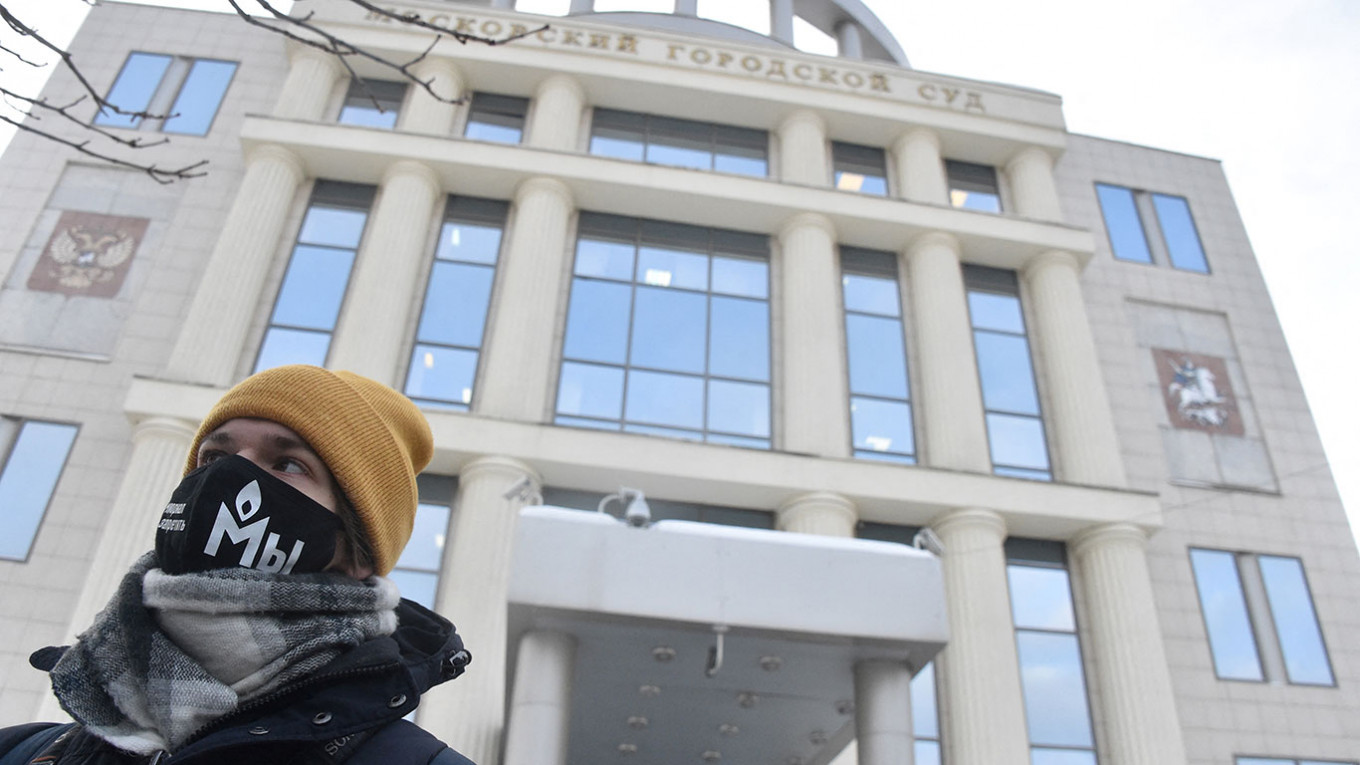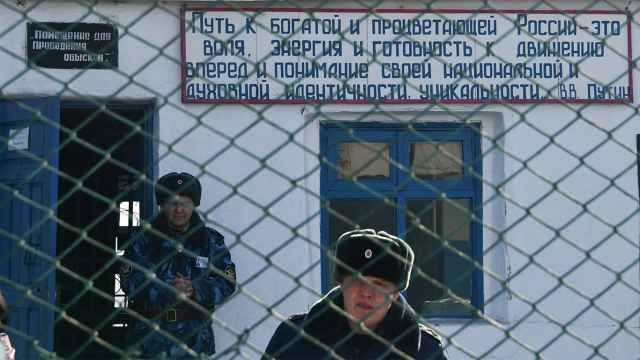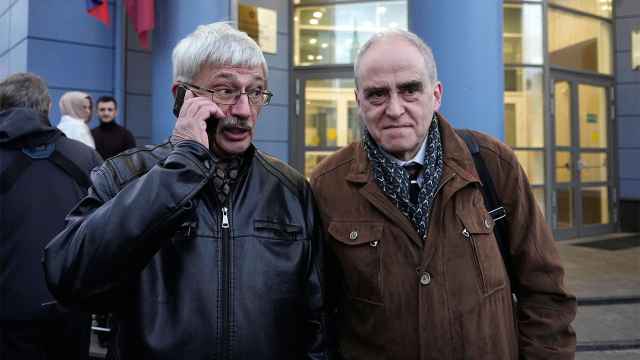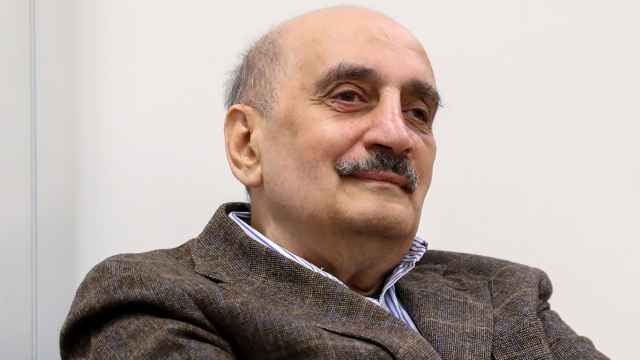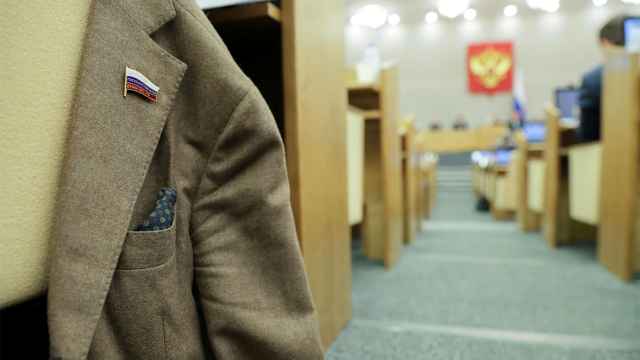A Moscow court on Thursday heard a case against Memorial that could shut down Russia's most prominent rights organization capping off a year marked by a historic crackdown on dissent.
Prosecutors have asked the court to dissolve Memorial's Human Rights Center, which campaigns for political prisoners and other disadvantaged groups, for alleged failures to use the "foreign agent" label on all their publications and for justifying terrorism.
As the Moscow City Court reconvened to hear the case, dozens of supporters gathered outside and observers were not allowed inside amid the coronavirus outbreak.
Speaking in court, the prosecutors said Memorial's failure to properly mark its materials could harm Russians' "psychological health" and cause depression.
The prosecution also said that the group's website contained information "justifying terrorism and extremism," adding that it "negatively affects children."
The trial comes in a year that witnessed an unprecedented crackdown on opponents of President Vladimir Putin, including the jailing of top opposition politician Alexei Navalny.
But the move to shutter Russia's top rights group stands out and would have been unimaginable a few years ago.
Authorities have also brought another case against Memorial International, the group's central structure, which is also accused of violating the "foreign agent" law.
Next week, Russia's Supreme Court is set to re-convene to hear the case against Memorial International.
The two cases are the largest threat to the organization's existence since it was founded in 1989 by rights activists including renowned scientist and Soviet dissident Andrei Sakharov.
They bookend a year that has seen authorities launch an unprecedented crackdown on the opposition and independent media, imprisoning Navalny in February and banning his organizations.
The pressure on Memorial has led to a major outcry in Russia and the West.
'Important work'
The Memorial Human Rights Center releases lists of people it says are political prisoners, including Navalny and members of religious minorities such as the Jehovah's Witnesses that have been outlawed in Russia.
In October, the organization said there were at least 420 political prisoners in Russia, noting that their number had risen sharply this year.
As well as political prisoners, the center also campaigns for groups facing pressure from authorities, including migrants and members of the LGBTQ community.
"Essentially we are doing what prosecutors should be doing, we are helping them," Memorial representative Alexander Cherkasov said in court.
"Our work is needed and important," he added.
Activists have called on Putin to intervene, but he told his human rights council that Memorial had been advocating on behalf of "terrorist and extremist organizations."
'Friend of the people'
Memorial International coordinates the work of dozens of organizations across Russia.
Russia's two living Nobel Peace Prize winners — the last Soviet leader Mikhail Gorbachev and Novaya Gazeta newspaper editor Dmitry Muratov — have urged prosecutors to withdraw their claims.
"Memorial is not an 'enemy of the people,'" Muratov said in his Nobel acceptance speech in Oslo this month. "Memorial is a friend of the people."
In another case next week, a court in the northwestern city of Petrozavodsk will deliver its ruling on Memorial employee Yury Dmitriyev, a historian the organization says is being targeted for his work exposing the horrors of the Soviet era.
Sentenced last year to 13 years in prison on what his supporters say were fabricated child sex charges, he faces two additional years in prison.
Memorial, which has become a symbol of post-Soviet democratization, has created a huge archive of Soviet-era crimes.
The trial against it coincides with the 30th anniversary of the fall of the Soviet Union marked later this month.
A Message from The Moscow Times:
Dear readers,
We are facing unprecedented challenges. Russia's Prosecutor General's Office has designated The Moscow Times as an "undesirable" organization, criminalizing our work and putting our staff at risk of prosecution. This follows our earlier unjust labeling as a "foreign agent."
These actions are direct attempts to silence independent journalism in Russia. The authorities claim our work "discredits the decisions of the Russian leadership." We see things differently: we strive to provide accurate, unbiased reporting on Russia.
We, the journalists of The Moscow Times, refuse to be silenced. But to continue our work, we need your help.
Your support, no matter how small, makes a world of difference. If you can, please support us monthly starting from just $2. It's quick to set up, and every contribution makes a significant impact.
By supporting The Moscow Times, you're defending open, independent journalism in the face of repression. Thank you for standing with us.
Remind me later.


